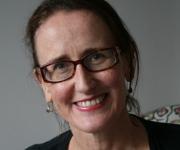BETWEEN 1932 and 1972, the US Public Health Service recruited 399 poor black Alabama share-croppers with syphilis to a study examining the natural history of the disease.
Described as the longest non-therapeutic experiment on humans ever conducted, the Tuskegee study has become synonymous with unethical medical research.
Participants were told only that they were being treated for “bad blood” but in fact were given no treatment, even after the advent of the antibiotics that could have cured them.
From our 21st century perspective, Tuskegee might seem to belong to another era, though many believe it continues to undermine African American trust in the health system and in those who deliver it.
It is hard to imagine such systematic betrayal of a particular racial group happening in the US today, but the exploitation of marginalised people continues to cast a shadow over some endeavours in medical research.
Clinical trials obviously need to be open to disadvantaged, illiterate or mentally ill people, but issues of consent can be particularly vexed in such cases.
Bioethicist Professor Carl Elliott is one of a number of ethicists and doctors campaigning for renewed investigation of an industry-funded study of antipsychotics conducted at the University of Minnesota a decade ago.
After the suicide of 26-year-old study participant Dan Markingson, several investigations cleared the university and researchers of any wrongdoing, though the social worker who coordinated the study was the subject of “corrective action” by the Minnesota Board of Social Work.
The case, however, refuses to go away. It is now the subject of a petition calling on the Governor of Minnesota to mount an independent inquiry.
The consent issues are troubling.
In November 2003, Mr Markingson was directed towards the CAFE study by the same psychiatrist who had, one week earlier, recommended he be involuntarily committed.
The study randomised patients experiencing a first psychotic episode to 1 year of treatment with one of three atypical antipsychotics (quetiapine, risperidone or olanzapine).
“The CAFE study was not without risks”, Professor Elliott writes. “It barred patients from being taken off their assigned drug; it didn’t allow them to be switched to another drug if their assigned drug was not working; and it restricted the number of additional drugs subjects could be given to manage side effects and symptoms such as depression, anxiety or agitation … subjects in the CAFE study had fewer therapeutic options than they would have had outside the study.”
Mr Markingson’s mother became increasingly concerned about her son’s wellbeing over the months following his recruitment, repeatedly contacting researchers to ask for a change in treatment or his removal from the study.
“Do we have to wait until he kills himself or someone else before anyone does anything?” she said in a voicemail message to the study coordinator.
Six months later, while still enrolled in the study, her son was found dead in his bathtub after repeatedly stabbing himself with a box cutter.
It may not be possible to blame Mr Markingson’s suicide on his participation in the research, but it is hard to understand how a man who had made repeated threats to kill his mother and who 1 week earlier had been recommended for involuntary commitment, could have been deemed capable of signing the study’s consent form, especially as he apparently believed this was the only way he could avoid being committed to a mental institution.
I wrote last year about pharmaceutical trials in the developing world and the many questions raised about adequacy of consent when participants have little medical knowledge and limited access to medical treatment outside the trial context.
When President Bill Clinton finally apologised to the eight remaining Tuskegee survivors in 1997, he acknowledged they had been lied to by their government and its health service.
“Men who were poor and African American, without resources and with few alternatives, they believed they had found hope when they were offered free medical care … They were betrayed.”
The least we owe those men is to make sure medical research today — wherever it is conducted — is based on a rigorous commitment to informed consent.
Jane McCredie is a Sydney-based science and medicine writer.
Posted 25 March 2013

 more_vert
more_vert
A film currently showing, Side effects, inadvertently reveals an interesting aspect of consent in US clinical trials. The patient realises she will not have to pay for her antidepressant on the trial compared to the big bucks she forks out for her current treatment and so consents. A perverse incentive in recruitment.
Very interesting. I am aware that a number of pharmaceutical companies pay per patient enrolled in clinical trials. I wonder how many of the enrolled patients are aware of this fact, and if this should be a part of informed consent?